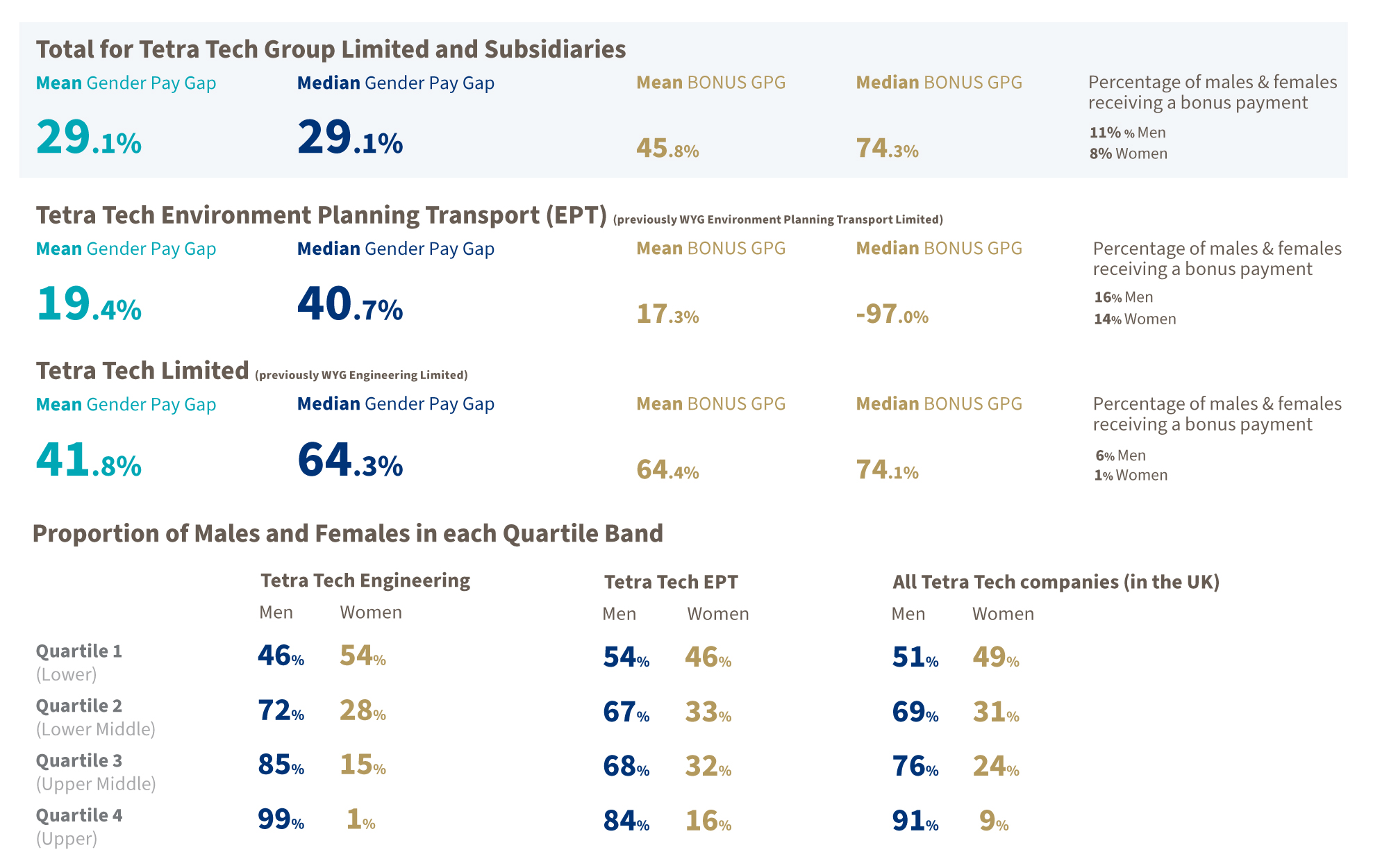
Today we are sharing our annual Gender Pay Gap report. Since our first report in 2018, we have sought to understand the reasons for our gender pay gap and address both short- and long-term measures to encourage more women into our business at all levels. While we are pleased to see things moving in the right direction, we still have much to do to become the diverse workplace we strive to be.
Today we are sharing our annual Gender Pay Gap report. Since our first report in 2018, we have sought to understand the reasons for our gender pay gap and address both short- and long-term measures to encourage more women into our business at all levels. While we are pleased to see things moving in the right direction, we still have much to do to become the diverse workplace we strive to be.
Our results are based on the snapshot date of 5 April 2020 (due to the pandemic, we did not report our figures last year). They reflect published data for legal entities in the UK that previously fell under the WYG name until our rebranding to Tetra Tech earlier this year.
Our Progress
The report shows marginal improvement in our mean gender pay gap across all our entities in the UK since our 2019 report. Although men and women are paid equally for the same work at Tetra Tech, much of gap exists due to an imbalance of males and females at senior levels offering high pay. This pattern is often felt throughout the built environment industry, especially in STEM-focused careers.
We are, however, continuing to progress in changing this. Our engineering business shows meaningful improvement across all but the upper quartile, and things are moving the right way in Tetra Tech Environment Planning Transport. Across all Tetra Tech companies generally, the outlook remains similar to our 2019 report, albeit with minor improvements to the lower quartile and upper middle quartile.
We know we can do better, and we recognise that for our organisation and industry to thrive, we must seek out more diverse talent from the next generation of consultants to shape tomorrow’s projects. Our push for entry level and diverse talent is reflected by the fact that our gender proportion is almost equal now in our lower quartile.
Going forward, our next step is to address the imbalance seen at higher levels. Our recent implementation of a mentoring scheme is one of the steps we are taking to ensure that women feel supported in the long run to progress and become leaders at Tetra Tech.
Our Commitment
Although we’re not where we want to be yet, we remain committed to change. Ever since WYG’s acquisition in 2019 and our rebranding to Tetra Tech this year, we have been extremely encouraged by the Diversity and Inclusion agenda across the wider group, inspiring us to strive for that same excellence in the UK.
To support this we have invested in unconscious bias training, We have also made amendments to our recruitment processes to achieve more diverse candidate shortlists and interview panels. We are also launching a returners’ programme to better support employees such as women returning from maternity leave and long-term illness later this year
As mentioned above, our mentoring programme is another key measure, based on exchanging experience, ideas, and feedback between two participants on a similar career path to promote continuing professional development and personal growth. On the one hand, it’s a great opportunity for mentees to tap into the experience of someone who can offer insight into the career step. On the other, it’s a way to give back and broaden leadership skills by seeing things from a fresh perspective.
Craig Hatch, President, Tetra Tech UK, commented on the mentoring scheme:
“I have long been a supporter of mentoring as a key development tool for mentors and mentees alike. Mentoring does involve some work in both directions to be successful, but the benefits of being mentor and mentee are significant and tangible. It is important to get fresh perspectives, ideas, and approaches to our work.”
We know that since the start of the coronavirus pandemic, women have felt disproportionately disadvantaged at work due to factors like picking up more childcare responsibilities. Going forward, we will listen to these issues and do what we can to ensure they do not set us back in achieving better gender diversity in our business. There is no simple fix, the road to improvement may take time, but it’s a journey we want to share with our industry peers as we strive to bring about greater diversity to benefit our clients, our partners, and our people.
Our reported data can also be found on the UK Government’s website via the links below: